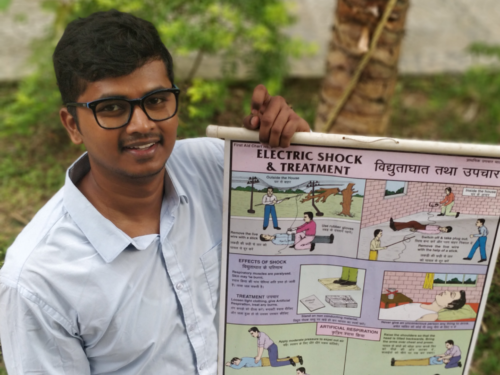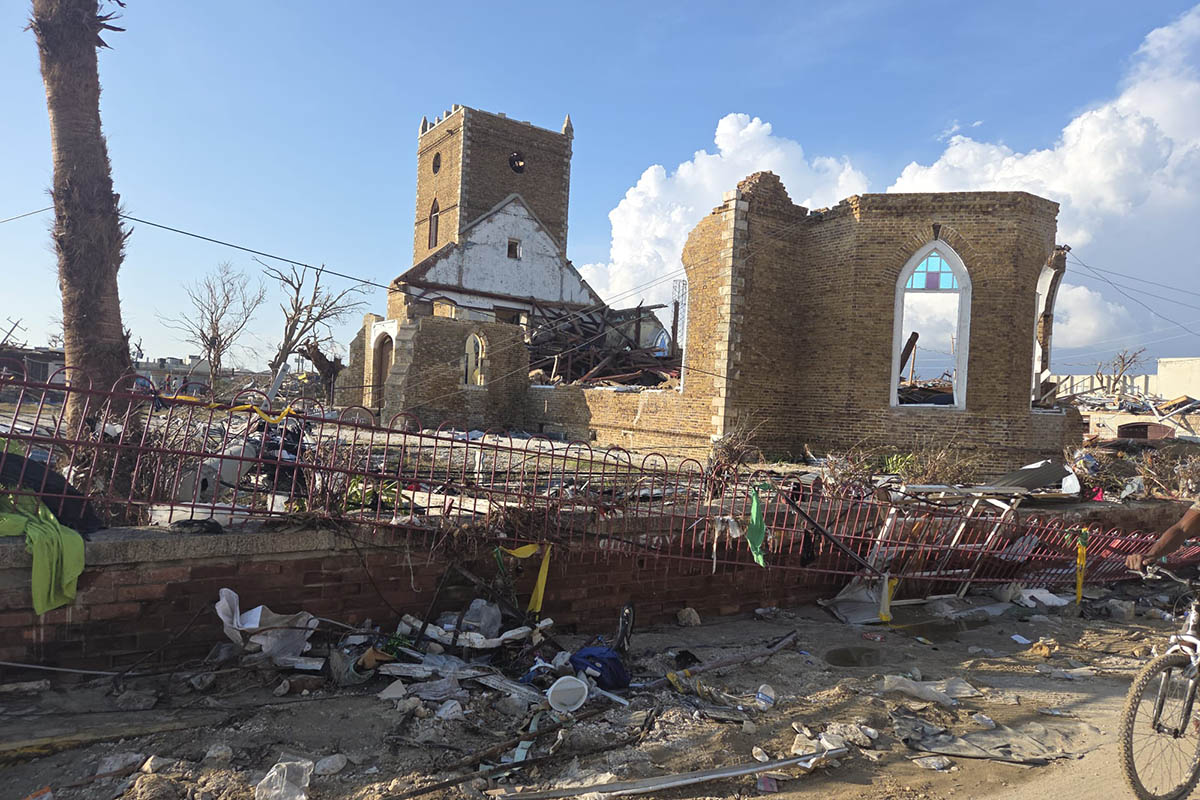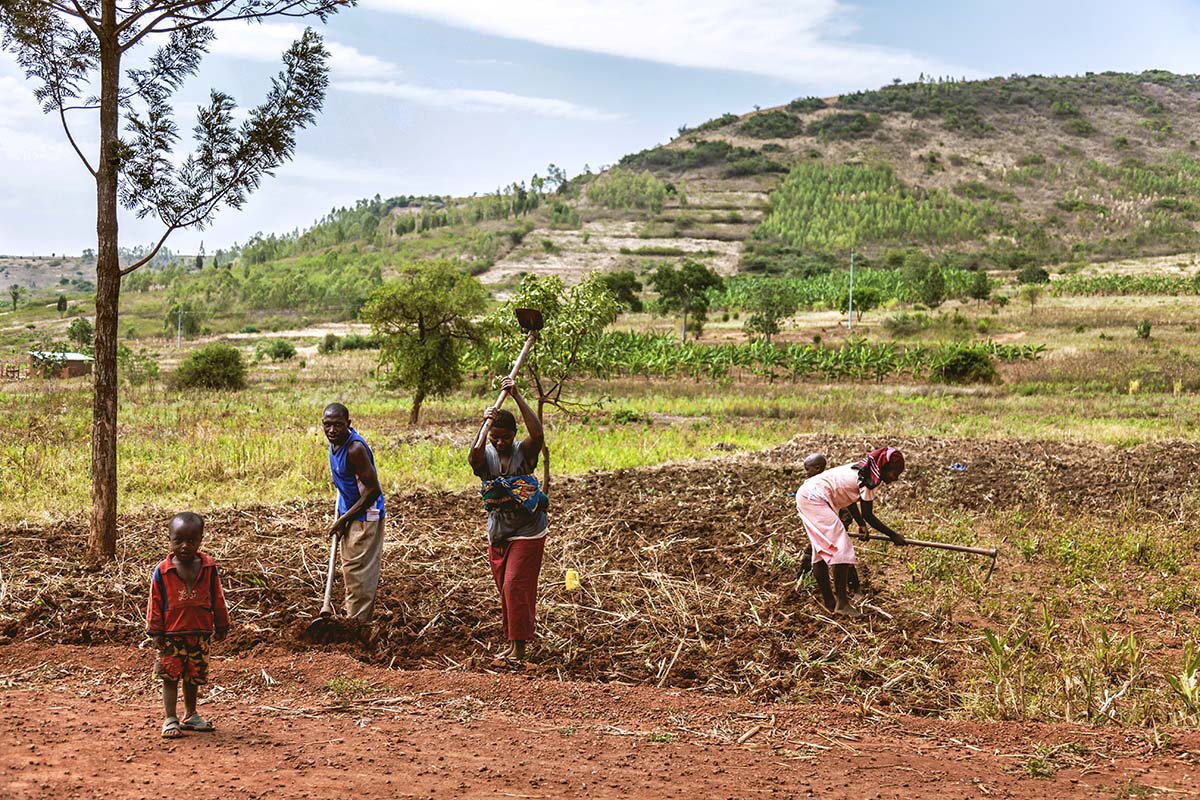Kaanthi: From tragedy to hope
April 22
Tragedy was what led to the launching of Satya Illa’s ‘Kaanthi’ which promotes electrical safety awareness through local education camps. Satya trains local communities in first aid and electrical safety, engages with local engineering colleges to raise awareness and has also developed a low-cost electrical insulator device to protect communities exposed to dangerous, poor quality electrical infrastructure in public spaces, McPherlain Chungu, 22, a Commonwealth Correspondent from Zambia interviewed this change maker.
The year was 2006, it was Sankranti, a Hindu festival that marks the end of the winter solstice and celebrates the first day of sun’s transition into the Makara (Capricorn). It is a joyful occasion. In the southern Indian state of Telangana, farmers decorate their cattle in vibrant colours. The air is filled with a fresh invigorating aroma of delicacies being cooked and shared. Far up above, bright coloured kites, gracefully soar and move in zig-zag motions. Children play with kites to mark the festival, decorating the sky with beautiful colours. But this jubilant scenery would soon turn into a frightful tragedy for Satya Illa and his community.
“I was on my rooftop preparing my kite,” he recounts. “My friends were running after the broken threads of kites and trying to catch them. There was fun and laughter everywhere but suddenly the laughter stopped. I saw a crowd gathering around a lifeless boy… That boy was my friend.” The boy’s kite had come into contact with live electrical wires, sending an electrical shock and killing him as he tried to pull his kite. An image that 6-year-old Satya would never forget.
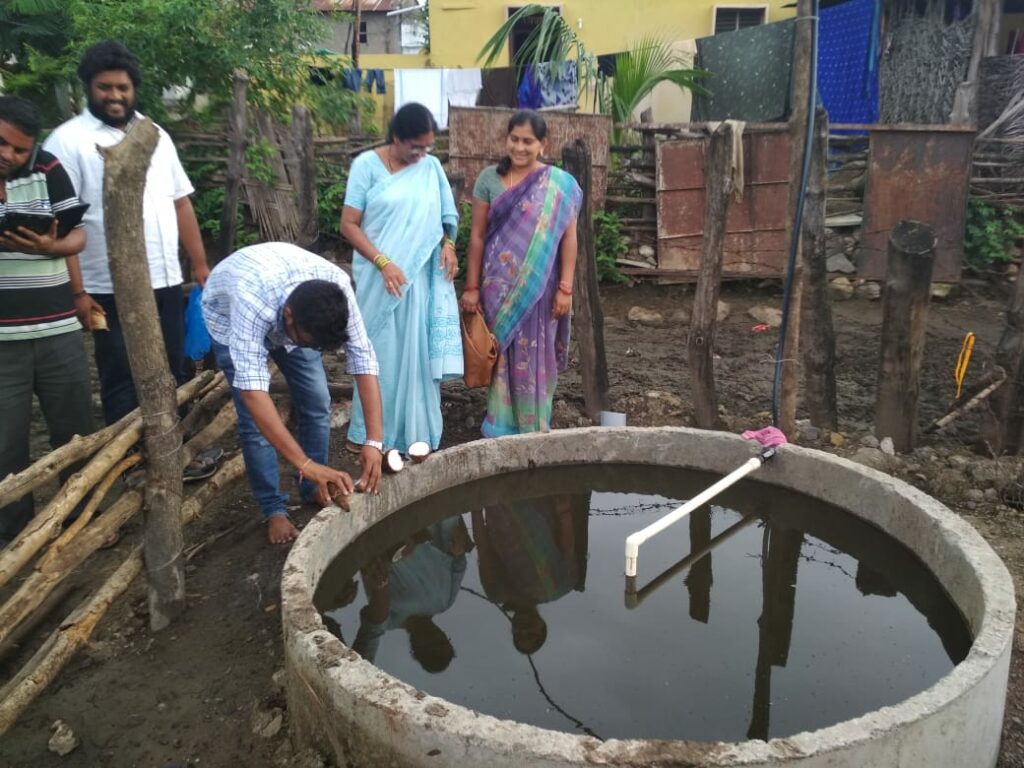
The trauma of this tragedy would haunt and follow Satya. “I was afraid of the dark. All my dreams turned into nightmares. I slept in the same room with my parents until I was 14.”
Seeing their boy who always wore a wide smile be so consumed by such trauma terrified Satya’s parents. They took him from temple to temple, but to no avail. “No prayer worked for me,” he lamented.
Slowly he began to overcome his fears. But the questions surrounding electricity, safety and the death of his friend forever lingered on. In University, Satya decided to pursue electrical engineering. The mentorship and research opportunities at the Institute of Electrical and Electronics Engineers drove him to discover insightful findings. The age of electrical components, the lack of maintenance and electrical safety awareness were the key contributing factors to electrocution fatalities across India. According to the Indian National Fatality report, every year there are 10,000 electrical accidents which occur across India. Out of which 400 or 4% occur in Telangana. The harsh reality that nearly every hour someone in India loses their life by electrocution disturbed Satya.
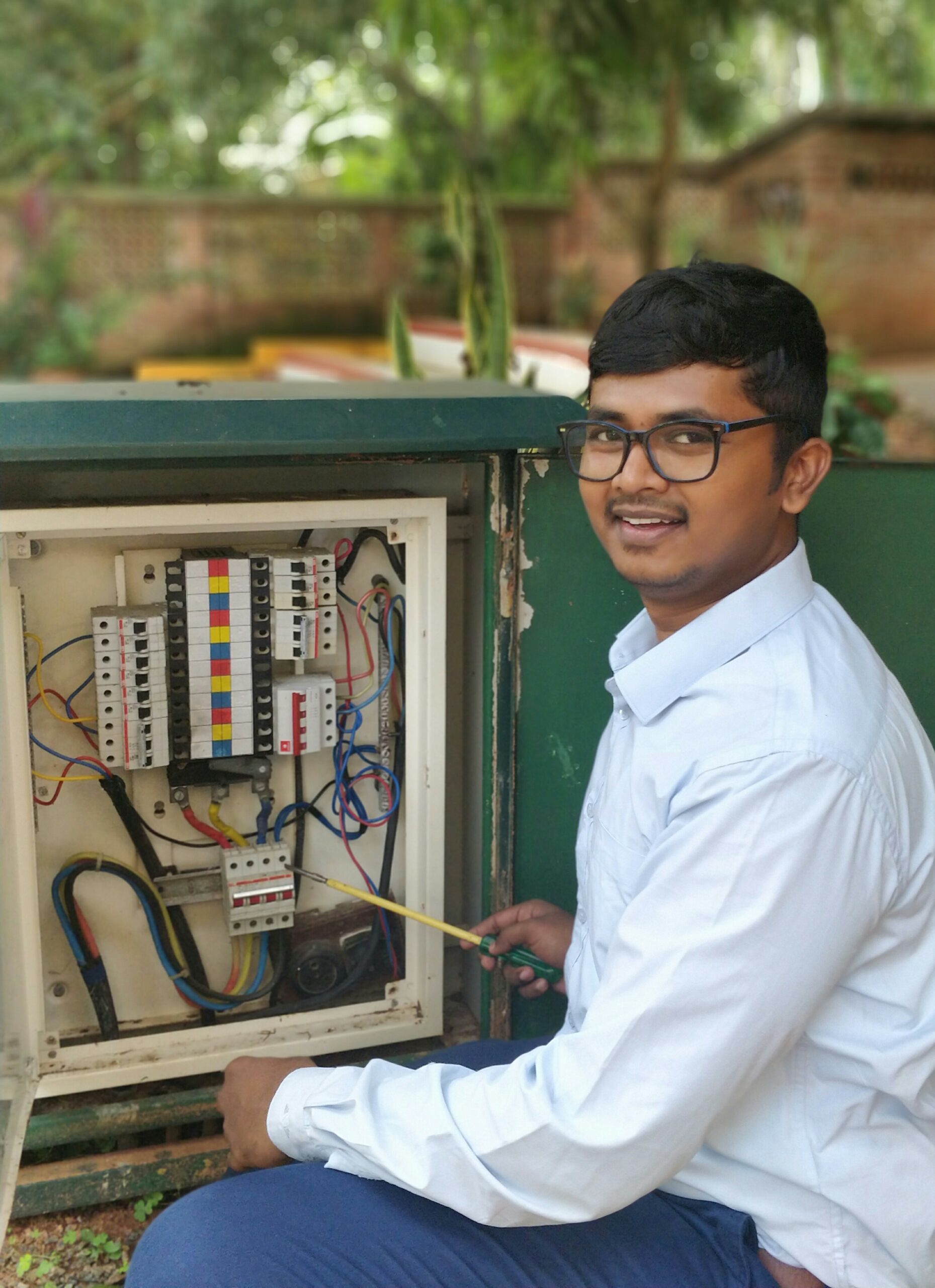
In 2016, Satya developed a low-cost ‘Electrical Pump Motor Starter’. Made of glass fibre material, the device is a durable insulator that bars unnecessary electrical flow through “a single-phase preventer (protection for the motor).” A device he would sale to farmers across Telangana at a fraction of the market price, without compromising its primary prerogatives; efficient functionality and safety. Most farmers in India use electric water pumps to irrigate their crops. The low-cost water pumps used in Telangana are made of cheap metal, which easily corrodes allowing moisture in. Corroded terminals and connections can produce heat, which may eventually ignite a fire and cause fatal electrocutions. Satya’s device has a glass fibre material around it, which prevents corrosion and the risks that come with it, thus making the user safe.
After developing the device, Satya noticed an awareness gap. To bridge it, he started Kaanthi, an invaluable initiative born from a tragedy. In Sanskrit, the word “Kaanthi” means light or glow. An apt name for an initiative that subsists as light in the shape of hope. Light existing to combat the darkness associated with ignorance hampering safe electricity usage. The organisation pinpoints villages with high rates of electrocution accidents. Satya’s team travels there to audit and check electrical infrastructure around the village. They advertise and organize safe electricity use camps and public seminars. They also share electrical safety media tools such as audios and videos in Telugu, the local language with the farmers (the target population). “We realised that audio-visual tools in local languages are very effective and are more likely to be remembered by farmers,” he told me.
However, this initiative was not without its own set of challenges. Convincing farmers, the most affected population, and earning their trust was an arduous challenge. Raising funds to finance research, development and operation costs was another. Furthermore, “the local market felt threatened by our efficient and cost-effective devices that they became so competitive in hopes to undercut us,” he told me. Despite all these hurdles Satya and his team persisted and remained steadfast.
The impacts have been encouraging. “In the 8 Telangana villages we installed the Electrical Pump Motor Starters, there have been no reported electrocution incidences,” he said.
As far as the future of Kaanthi is concerned, Satya sees an even brighter one. “We have been able to prevent fatalities, but what about the families and people already affected by electrocution-related deaths?” He plans to help empower families affected by electrical shocks to drive the next chapter of India’s renewable energy wave. “Because the impacts of losing a breadwinner for families are vast. Children drop out of schools as they can no longer afford it and families fall deeper in poverty. I strongly believe we can change this.”
Satya’s story is an example of what is possible when perseverance, empathy and courage are combined. The primacy of his work is that it is premised on the recognition that people are at the centre of the problem of electrical fatalities, but it does not stop there. It goes further, realising that if people are in fact at the centre of the problem, they can also be at the centre of the solution. This is evident in how his work has been conducted. He understands that this is very much a problem that required inclusion and collaboration, and most importantly, shifting attitudes and perspectives through awareness.
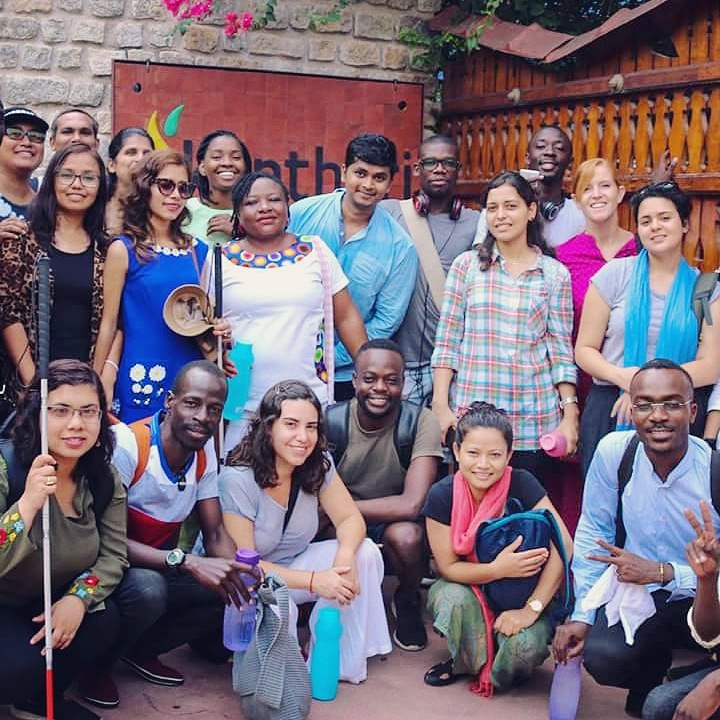
What is also remarkable about his work is that it sought to empower ordinary farmers on how they can utilize the Electrical Pump Motor Starter to make their electricity usage safer and avoid accidents.
Most importantly, Satya is a constant reminder that sometimes the most complex problems require just simple solutions.
Satya Illa was a finalist in the Commonwealth youth Award 2019
About McPherlain Chungu: I am curious, charismatic, ambitious and determined, with keen interest in social and political issues, gender and identity politics in particular. Born and raised in Zambia, I pursued my undergraduate studies in Delhi. My dream is to make the world a place with the same standards for everyone and emphasis on mutual benefit – an ideal we must strive towards.I am a news blogger, movie and film fanatic and travel enthusiast. A practical idealist
